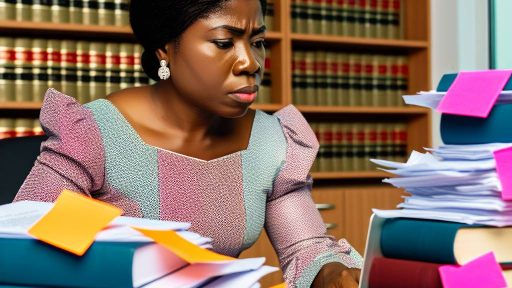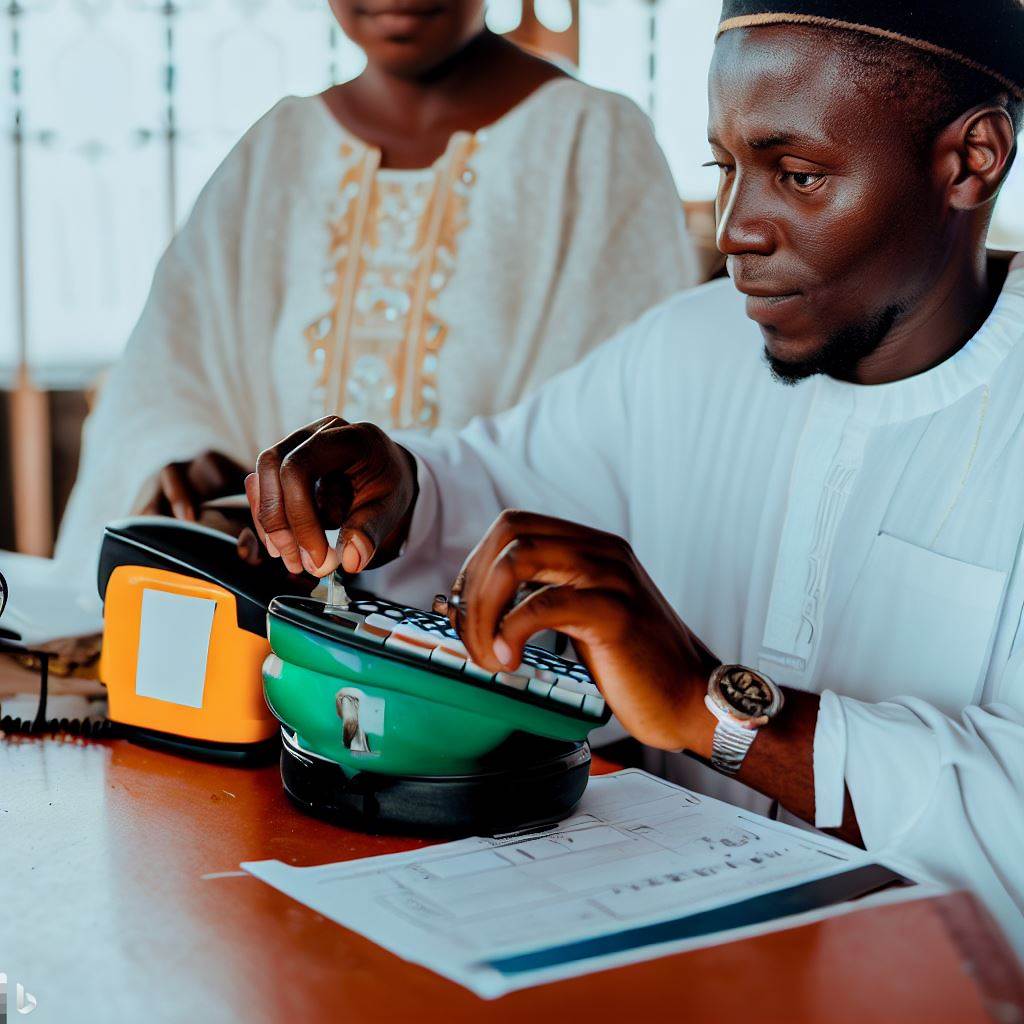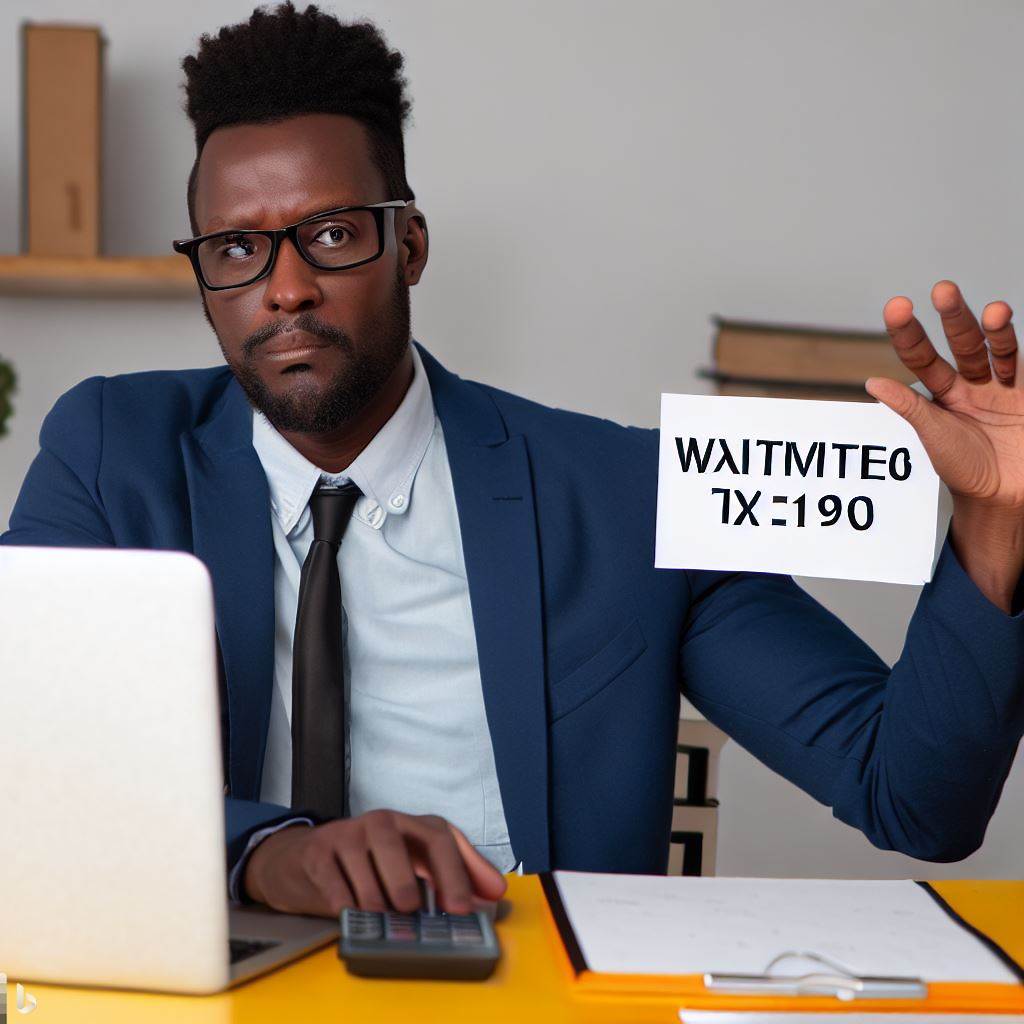Understanding Intellectual Property: A Primer for Nigerian Freelancers
What is Intellectual Property?
Intellectual property (IP) includes creations of the mind.
It covers inventions, artistic works, and symbols.
Moreover, IP is vital for creative professionals.
It safeguards unique ideas and innovations.
The Importance of Protecting Intellectual Property
Protecting your IP ensures you retain control.
It promotes financial benefits from your work.
Furthermore, it discourages unauthorized use of your creations.
This protection fosters innovation in the freelance community.
Types of Intellectual Property
There are several main types of intellectual property.
- Copyright protects original works of authorship.
- Patents secure inventions and processes.
- Trademarks distinguish goods and services.
- Trade secrets involve confidential business information.
Copyright Explained
Copyright applies automatically to creative works.
This includes literature, music, and visuals.
In Nigeria, copyright protection lasts for the author’s lifetime plus 70 years.
You should register your work to enhance your protection.
Patents and Their Relevance
Patents protect new inventions and unique methods.
In Nigeria, you can secure a patent for 20 years.
Transform Your Freelance Journey
Unlock your potential with expert Freelance Consulting. Receive a personalized PDF in 1-3 business days, with revisions until you're satisfied.
Get StartedThis enables you to prevent others from making, using, or selling your invention.
Understanding Trademarks
Trademarks identify and protect brands and logos.
A registered trademark can last indefinitely.
This is crucial for building a unique brand identity.
Trade Secrets and Their Value
Trade secrets include formulas, practices, and processes.
These must be kept confidential to provide value.
Effective measures include non-disclosure agreements.
Legal Frameworks for Intellectual Property in Nigeria
Nigeria has set laws governing intellectual property.
The Copyright Act governs copyright issues.
The Trademark Act covers trademarks and branding.
Furthermore, patents are under the Patents and Designs Act.
Steps for Protecting Your Intellectual Property
First, identify the type of IP you possess.
Next, consider registering your IP with the relevant authorities.
Additionally, use contracts to clarify usage permissions.
Transform Your Freelance Profile into a Client Magnet
Unlock unparalleled opportunities with a profile that stands out. We craft compelling summaries and optimize your skills to attract high-paying clients no one else can reach.
Optimize NowMake sure to enforce your rights when necessary.
Best Practices for Freelancers
Maintain thorough records of your work and ideas.
Engage in contracts that outline ownership rights.
Educate yourself on IP regulations in Nigeria.
Always be proactive in protecting your intellectual property.
Types of Intellectual Property in Nigeria
Copyright
Copyright protects original works of authorship in Nigeria.
This includes literature, music, film, and software.
Creators automatically own copyright upon the creation of their work.
Registration is not mandatory but offers additional legal benefits.
Duration of copyright in Nigeria lasts for the author’s lifetime plus 70 years.
Additionally, copyright infringement can lead to legal consequences.
Trademarks
Trademarks identify goods or services and distinguish them from others.
In Nigeria, trademarks can be registered with the Trademark Registry.
Registration grants exclusive rights to use the trademark.
Reveal Your Untapped Niche for Maximum Earnings
Imagine excelling in a niche where your skills shine and competition fades. We analyze markets and your talents to pinpoint the most profitable niches uniquely tailored to you—opportunities others overlook.
Find NicheIt also protects against unauthorized use by others.
The validity of trademarks can span an initial period of 14 years.
Furthermore, trademarks can be renewed indefinitely every 14 years.
Patents
Patents protect inventions that provide a new solution to a problem.
This includes products, processes, and improvements to existing technologies.
In Nigeria, patent registration requires an application process.
A granted patent lasts for 20 years from the filing date.
Moreover, patent rights prevent others from using the invention without consent.
Failure to properly protect patents can lead to loss of exclusive rights.
The Legal Framework Governing Intellectual Property in Nigeria
Overview of Intellectual Property Rights
Intellectual Property (IP) rights protect creators and their work.
These rights cover inventions, designs, and artistic works.
They ensure that creators benefit from their creativity.
Types of Intellectual Property in Nigeria
Nigeria recognizes several forms of IP rights.
These include copyright, trademarks, and patents.
Each type has specific legal protections and requirements.
Copyright
Copyright protects original works of authorship.
This includes literary, artistic, and musical works.
Creators automatically own copyright upon creation.
Trademarks
Trademarks protect brand names and logos.
They distinguish goods and services from competitors.
Trademark registration is essential for legal protection.
Patents
Patents protect inventions and innovative processes.
They grant exclusive rights to the inventor.
A patent requires formal application and examination.
Legislation and Regulatory Bodies
Various laws govern IP in Nigeria.
The Nigerian Copyright Act is fundamental for copyright issues.
The Trademarks Act regulates trademarks and their registration.
The Patents and Designs Act addresses patents and industrial designs.
Regulatory Bodies
The Nigerian Copyright Commission oversees copyright matters.
The Trademarks Registry handles trademark registrations.
The National Office for Technology Acquisition and Promotion manages patents.
International Treaties and Agreements
Nigeria is a signatory to various international treaties.
The Berne Convention protects literary and artistic works.
The Paris Convention governs the protection of industrial property.
These treaties enhance the protection of IP rights in Nigeria.
Challenges in Protecting Intellectual Property
Despite the laws, IP protection faces several challenges.
One significant issue is widespread piracy and counterfeiting.
Also, enforcement of IP laws can be inconsistent.
Lack of public awareness about IP rights further complicates matters.
Strengthening Intellectual Property Laws and Enforcement
Strengthening IP laws and enforcement is crucial for Nigeria.
Public education on IP rights can enhance protection.
Finally, collaboration with international bodies can facilitate progress.
Discover More: Navigating NDAs and Confidentiality Clauses as a Nigerian Freelancer
Common Intellectual Property Issues Faced by Freelancers
Understanding Intellectual Property Basics
Freelancers often create original work that is eligible for protection.
Intellectual property (IP) encompasses various forms such as copyrights, trademarks, and patents.
Understanding these categories is essential for freelancers in Nigeria.
Copyright Concerns
Copyright protects the expression of ideas in tangible forms.
Freelancers can face issues with clients claiming ownership of their work.
For example, if a graphic designer creates a logo, the client might use it without permission.
To avoid this, freelancers should clarify ownership rights in their contracts.
Trademark Challenges
Trademarks safeguard brand identities like logos and slogans.
Freelancers might inadvertently infringe on existing trademarks.
Conducting a thorough search before creating branding materials is crucial.
Additionally, freelancers should educate clients about trademark laws.
Patents and Inventions
Freelancers involved in product development may need to consider patent protection.
If they invent a new product, they should file for a patent promptly.
Failure to do so might lead to someone else patenting the same invention.
Non-Disclosure Agreements
Non-disclosure agreements (NDAs) protect confidential information.
Freelancers should use NDAs when sharing sensitive information with clients.
For instance, if a freelancer discusses a new software idea, an NDA helps preserve confidentiality.
Licensing Issues
Freelancers often license their work to clients.
However, clients might assume they own the rights fully after payment.
To prevent misunderstandings, freelancers should specify licensing terms in contracts.
International Considerations
Freelancers working with international clients face additional IP complexities.
IP laws vary significantly across countries.
Therefore, freelancers should familiarize themselves with the IP laws of their clients’ countries.
Ensuring Compliance with Nigerian Laws
Nigeria has specific laws protecting intellectual property rights.
Freelancers must ensure their contracts comply with these local regulations.
Consulting a legal expert can provide valuable insights into compliance.
You Might Also Like: Understanding Taxes and How They Apply to Freelancers in Nigeria
How to Register Your Intellectual Property in Nigeria
Understanding Intellectual Property Types
Intellectual property encompasses various types of creations.
These include inventions, literary works, and trademarks.
Each type has specific registration processes in Nigeria.
Assess Your Intellectual Property
First, identify what you want to protect.
This could be a unique design or a brand name.
Next, ensure your creation is original and not already registered.
Gather Required Documentation
Collect all necessary documents for the registration process.
For trademarks, you’ll need a representation of the mark.
For patents, prepare detailed descriptions of your inventions.
Literary works may require a copy of the work itself.
Choosing the Right Registration Agency
In Nigeria, the Trademarks, Patents and Designs Registry handles registrations.
Visit their official website for more information.
You may also consider consulting a legal expert in intellectual property.
Filing Your Application
Complete the relevant application forms accurately.
Submit your application along with the required documents.
Make sure to pay the appropriate registration fees promptly.
Tracking Your Application
After submission, you will receive an acknowledgment of receipt.
You can track the status of your application online.
Be prepared to respond to any inquiries from the registry.
Receive Your Certificate
If approved, you will receive a registration certificate.
This certificate is proof of your ownership and rights.
Keep it safe, as it’s essential for enforcing your rights.
Maintaining Your Intellectual Property
Stay aware of renewal dates for your registrations.
Regularly check for any potential infringements on your rights.
Be ready to take action if someone violates your intellectual property.
Find Out More: The Freelancer’s Guide to Navigating Nigeria’s Tax System Without Hassle
Best Practices for Freelancers to Protect Their Work
Understand Intellectual Property Rights
Freelancers need to grasp the concept of intellectual property rights.
This understanding helps in guarding original works effectively.
Intellectual property includes copyrights, trademarks, and patents.
Each of these rights protects different aspects of creative work.
Furthermore, knowing these rights strengthens your negotiation position.
Use Contracts and Agreements
Always draft contracts when engaging with clients.
A detailed contract outlines ownership and usage rights.
Include clauses that specify how your work can be used.
Be sure to discuss these terms openly with clients.
This transparency fosters trust and minimizes potential disputes.
Register Your Work
Consider registering your work with relevant authorities.
This registration provides a legal backing for your creations.
In Nigeria, you can register works with the Copyright Office.
Proper registration acts as a great deterrent against infringement.
Moreover, it simplifies the process if you need to take legal action.
Protect Your Digital Assets
Utilize watermarks on visual content before sharing.
This prevents unauthorized use of your images.
Use secure passwords for your online portfolios and accounts.
Passwords should be strong and unique for each platform.
Additionally, back up your files regularly to avoid loss.
Educate Yourself Continuously
Stay informed about changes in intellectual property laws.
Attend workshops and webinars focused on freelance rights.
These events enhance your knowledge and equip you for challenges.
Also, join professional organizations for ongoing support.
Networking with peers enhances learning opportunities.
Be Proactive in Enforcement
If someone infringes your work, act quickly.
Contact the offender and politely request removal of your work.
If this fails, consult with a legal professional for advice.
Keeping records of your work helps in enforcement actions.
Ultimately, being proactive showcases your seriousness in protecting your rights.
Gain More Insights: Avoiding Legal Pitfalls: Essential Contract Clauses for Nigerian Freelancers

Steps to Take if Your Intellectual Property is Infringed
Recognize the Infringement
Start by identifying the specific infringement of your intellectual property.
Check if the infringement directly affects your rights or business operations.
Document the infringement thoroughly, including dates and details.
Gather Evidence
Collect all relevant evidence of the infringement.
This may include screenshots, correspondence, and copies of your original work.
Ensure that you have timestamps for all collected materials.
Consult a Legal Expert
Seek advice from a lawyer specializing in intellectual property law.
Provide them with all the gathered evidence for review.
Discuss possible legal avenues based on your situation.
Send a Cease and Desist Letter
If advised, draft a cease and desist letter to the infringing party.
This letter should outline the infringement and your rights.
Demand that they stop the infringing activities immediately.
Consider Formal Legal Action
If the infringement continues, consider pursuing formal legal action.
Discuss the benefits and risks of litigation with your lawyer.
Your lawyer can help draft the necessary legal documents.
Monitor the Situation
Continue to monitor the infringing party’s activities.
Document any further infringements and maintain communication with your lawyer.
Stay proactive in protecting your intellectual property rights.
The Role of Contracts in Safeguarding Intellectual Property Rights
Importance of Contracts
Contracts are essential for protecting intellectual property in Nigeria.
They outline the terms and conditions between parties.
This clarity helps prevent misunderstandings and disputes.
Moreover, contracts can specify the ownership of creations.
They serve as legal proof of agreements made.
Types of Contracts Relevant to Intellectual Property
Several contract types specifically address intellectual property rights.
Non-Disclosure Agreements (NDAs) keep sensitive information confidential.
Licensing agreements allow others to use your work under specific terms.
Collaboration agreements are important for joint projects.
These contracts define each party’s contributions and rights.
Key Elements to Include in Contracts
Including crucial elements is vital for effective contracts.
Start with clear definitions of intellectual property.
Next, outline the specific rights granted to each party.
Additionally, specify the duration of the agreement.
Include clauses related to termination and dispute resolution.
Enforcement of Contracts
Enforcing contracts is crucial to protect intellectual property.
Legal action may be necessary if terms are violated.
Courts in Nigeria recognize and uphold contracts effectively.
In addition, mediation can often resolve disputes amicably.
Consulting Legal Experts
Consulting legal experts helps ensure effective protection of rights.
They can draft contracts tailored to specific needs.
Experienced lawyers navigate the complexities of law in Nigeria.
Furthermore, they keep you informed about changes in legislation.
Resources and Organizations for Intellectual Property Support in Nigeria
Government Agencies
The Nigerian Copyright Commission plays a vital role in protecting creative works.
They provide guidance on copyright laws and offer registration services.
The Intellectual Property Office collaborates with various stakeholders on IP matters.
This office enhances awareness of IP issues and promotes compliance with laws.
Non-Governmental Organizations
Various NGOs focus on intellectual property rights in Nigeria.
The Creative Industry Group advocates for the rights of creatives nationwide.
They provide resources and support for copyright registration and education.
The Nigerian Association of Small and Medium Enterprises also promotes IP awareness.
Legal Resources
Many law firms specialize in intellectual property law in Nigeria.
Fola Alabi & Co. provides legal support for copyright and trademark registration.
They help freelancers understand their rights and obligations under the law.
Another reputable firm is Adeola Olaiya Legal Consultants, which offers consultations.
Online Platforms
Digital resources offer valuable information on intellectual property issues.
The Nigeria IP Hub is an excellent site for learning about IP laws and policies.
They publish articles and host webinars on IP protection strategies.
Freelancers can find templates for contracts and agreements online.
Networking Opportunities
Joining professional groups can provide significant networking opportunities.
Freelancers should consider becoming members of the Association of Freelancers.
This organization hosts events to discuss current IP challenges and solutions.
Connecting with fellow freelancers can help in sharing valuable insights.
Additional Resources
Susan Akinade – Experienced Associate, Intellectual Property and …
A Resource Guide to the U.S. Foreign Corrupt Practices Act (Second …




